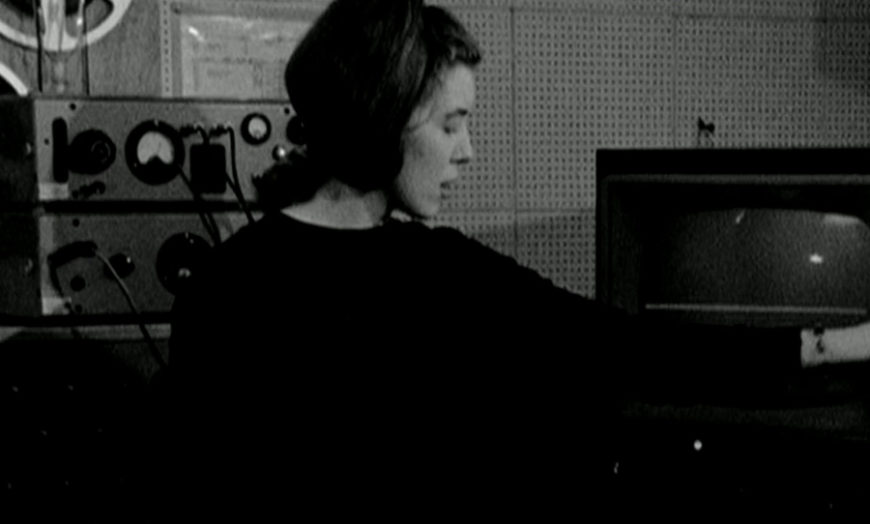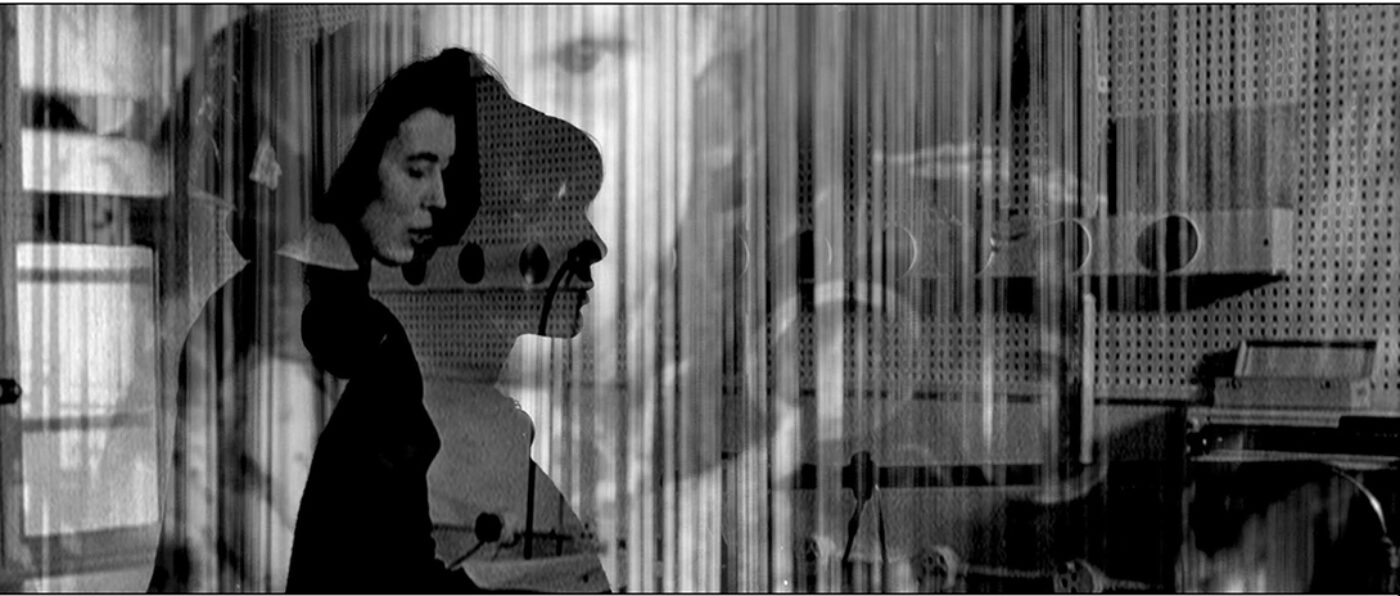:format(jpeg):mode_rgb():quality(90)/discogs-images/R-4434192-1364766462-7299.jpeg.jpg)
Back in the infancy of Folk Horror Revival, myself and fellow founding member Darren Charles cut our teeth on the live talk scene on behalf of FHR, delivering a lecture to the Alchemical Landscapes symposium at Girton College, Cambridge Univerity. In those hallowed halls we dedicated our talk to two luminaries of sound – Cambridge town’s own madcap Syd Barrett (as it was on the anniversary of his death that we spoke) and also to Delia Derbyshire, as Girton was the college she attended whilst studying her twin passions of mathematics and music.
But why would a pair of northern folk horror revivalists pay homage to an electronic music pioneer? The answer lies in that peculiar relationship (symbiosis?) between folk horror and hauntology. That and the fact we were both honoured and awed to be invited to speak at the seat of learning that the sculptress of sound once haunted with her presence.
Caroline Catz’s impressive documentary / docu-drama Delia Derbyshire: The Myths and the Legendary Tapes (broadcast as part of the BBC’s Arena arts programming) further illustrates the bond between Derbyshire and her contemporaries and the worlds of folk horror & urban wyrd aesthetics.

Born in Coventry in 1937, Delia Derbyshire stated that hearing the sound of air raid sirens as a child during the war had a profound effect on her and cemented a lifelong obsession with sound. Hailing from a working class background (which the plum intonations of her speaking voice would hardly suggest), Delia was offered places to study at both Oxford and Cambridge but followed a scholarship at the latter to study mathematics. She combined this course with her love of phonaesthetics and graduated in 1959 with a BA in Maths and Music.
Having taken up a position at the BBC in 1960; in 1962 she was reassigned to the BBC Radiophonic Workshop – a department that some may have considered as punishment but a place where Delia felt a yearning to be. It is her work and time here that provides the main focus of Catz’s documentary.

Set up in 1957 by Desmond Briscoe and the legendary Daphne Oram (an aural enchantress whose mastery of sonic weirdness was hidden behind features that would not have looked out of place at a Women’s Institute coffee morning) the task of the Radiophonic Workshop was to provide incidental sounds for radio and then television programming. Their task of creating new and different sounds led the workshop, which was based in Maida Vale, London and employed the sonic services of a number of sound wizards and visionaries to various fields of experimentation and the embracing of tape manipulation and Musique Concrete methodology. Oram departed the Workshop to found her own studio in 1959, but Delia would later fill those shoes with great competence and vision. A moment that would mark her place in music history came in 1963 when composer Ron Grainer asked whether she could do anything for a theme tune that was needed for a new BBC series. Providing Delia with a few musical notes and abstract suggestions for sounds including “wind bubbles” and “wind clouds”, she set to work. The TV show was called Doctor Who and for it Delia crafted one of the most infamous, innovative, timeless and enduring television theme tunes ever.

Catz’s documentary of course captures that seminal moment, but she has a lot more to say about the life, loves, art and depression of Delia Derbyshire. The film is cut between interviews with those who knew and worked with Delia, recordings of her own voice in interviews and dramatised scenes in which Catz herself plays Delia. (I was racking my brain trying to remember where I recognised Caroline Catz from and it turns out that she plays the love interest of Doctor Martin in the eponymous tv show that has seemed to air on British telly since the dawn of time). In my mind now though she will be forever associated to this film which is clearly a work of love as well as of art.

Catz guides us through the highs and lows of Delia’s life and soundscapes- through a haze of marijuana smoke and acid colours as psychedelia and Delia embraced each other and her depression and alcoholism (which was not considered much of a problem by Delia who seemed to see herself as a hopeful drunk rather than a hopeless one). We surrender to the white noise and are immersed in history and sound under the guiding light of Nick Gillespie’s cinematography. We voyeuristically listen on as seance-like, Delia engages in conversation with the disembodied voices of Mary Wollstonecraft and Ada Lovelace. Yet we are not merely enveloped in the broadcast of ghosts, for working with the 267 tapes belonging to Delia, that were found stored in cereal boxes in an attic after her death in 2001, the artist Cosey Fanni Tutti (possibly most well known for her work in the extreme art-music scene of COUM and Throbbing Gristle alongside Genesis P-Orridge) uses the magical archive to create more manipulation of sound.
It is not just Tutti however that has been inspired by Delia Derbyshire, as without her and the other Radiophonic visionaries the music output of the likes of Caro C, Burial, the Ghostbox oeuvre, Concretism, Broadcast, The Soulless Party and various other trip-hop, vapourwave, hauntological, electronic and film, TV & radio soundscape composers would likely be a different kettle of fish altogether.
Passing away from renal failure early after the turn of the century, Delia Derbyshire would likely be “tickled pink” to know that two decades into the 21st Century that the sound experiments she created as much as 60 years ago would be inspiring and innovating musicians and music now.
Delia Derbyshire: The Myths & The Legendary Tapes is available for free streaming to UK viewers now at ~
https://www.bbc.co.uk/iplayer/episode/m000w6tr/arena-delia-derbyshire-the-myths-and-the-legendary-tapeshttps://www.bbc.co.uk/iplayer/episode/m000w6tr/arena-delia-derbyshire-the-myths-and-the-legendary-tapes

Reviewed by Andy Paciorek